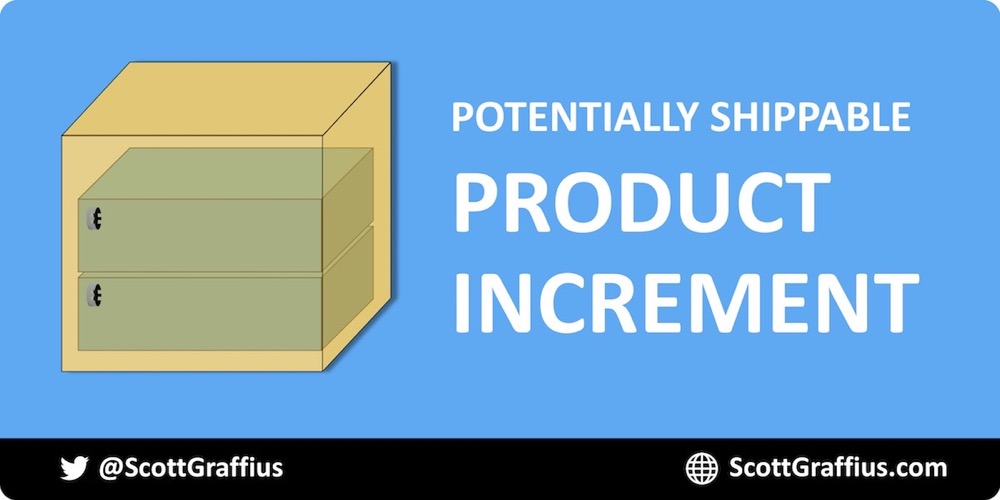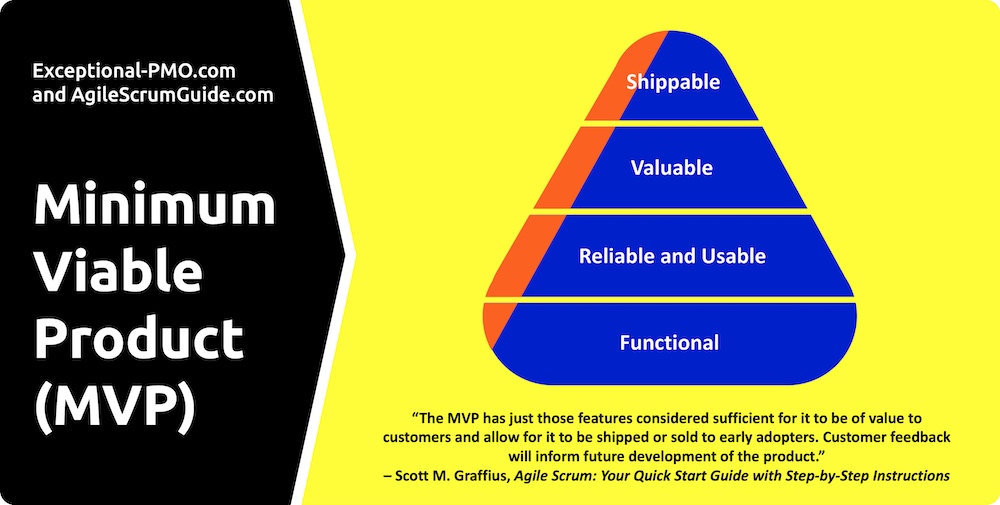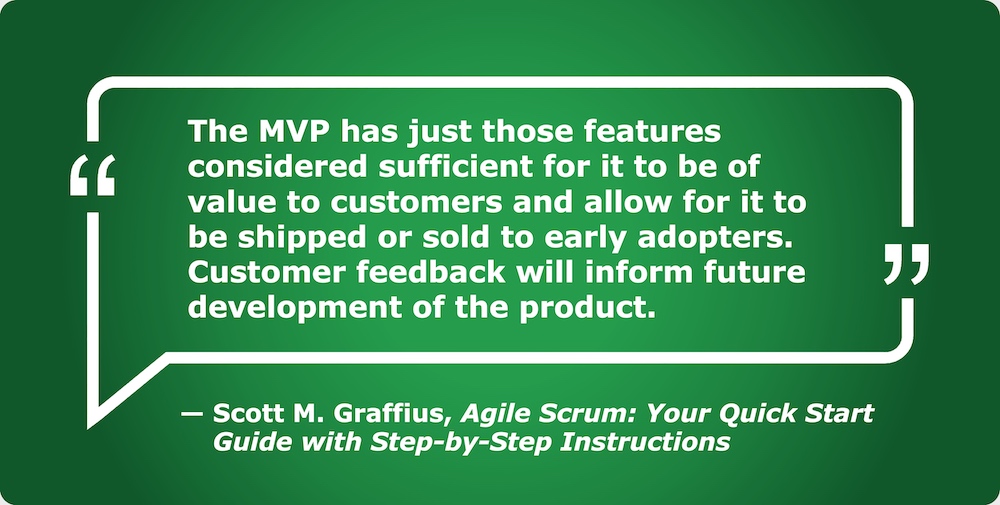Potentially Shippable Product Increment and Minimum Viable Product Approach
22 January 2018
Potentially Shippable Product Increment

Scrum requires teams to build an increment of functionality during every sprint, and the increment must be potentially shippable because the Product Owner might decide to release it at the end of the sprint.

Minimum Viable Product Approach

The product increment may or may not be marketable. However, a Minimum Viable Product (MVP) approach is sometimes used to help test marketable ideas. MVP is a product release strategy which can be used in Scrum (or another framework). The term was created by Frank Robinson, and popularized by Steve Blank and Eric Ries.

Agile Scrum: Your Quick Start Guide with Step-by-Step Instructions (http://bit.ly/scrumone) says:
"The MVP has just those features considered sufficient for it to be of value to customers, and allow for it to be shipped or sold to early adopters. Customer feedback will inform future development of the product."
Here are a few examples of then-startups use of an MVP:


© Copyright 2018 Scott M. Graffius. All rights reserved. This material may not be published, broadcast, rewritten or redistributed without the express written permission of Scott M. Graffius.


Scrum requires teams to build an increment of functionality during every sprint, and the increment must be potentially shippable because the Product Owner might decide to release it at the end of the sprint.
- The product increment is the sum of all backlog items completed during the current sprint
- Potentially shippable is defined by a state of confidence or readiness
- Shipping is a business decision: shipping may or may not occur at the end of the sprint (new functionality may be accumulated via multiple sprints before being shipped)

Minimum Viable Product Approach

The product increment may or may not be marketable. However, a Minimum Viable Product (MVP) approach is sometimes used to help test marketable ideas. MVP is a product release strategy which can be used in Scrum (or another framework). The term was created by Frank Robinson, and popularized by Steve Blank and Eric Ries.

Agile Scrum: Your Quick Start Guide with Step-by-Step Instructions (http://bit.ly/scrumone) says:
"The MVP has just those features considered sufficient for it to be of value to customers, and allow for it to be shipped or sold to early adopters. Customer feedback will inform future development of the product."
Here are a few examples of then-startups use of an MVP:
- Facebook: The first product (originally called Thefacebook) tested traction of students connecting with their college/class and posting messages. Other features—built on the initial success—came later.
- Groupon: It launched with a WordPress site and PDFs emailed to early subscribers. The test proved successful, and the company subsequently built its voucher system and backend.
- Spotify: The initial product was simple desktop app, tested in a closed beta. The MVP proved to be of interest to consumers, and more features followed.

© Copyright 2018 Scott M. Graffius. All rights reserved. This material may not be published, broadcast, rewritten or redistributed without the express written permission of Scott M. Graffius.

